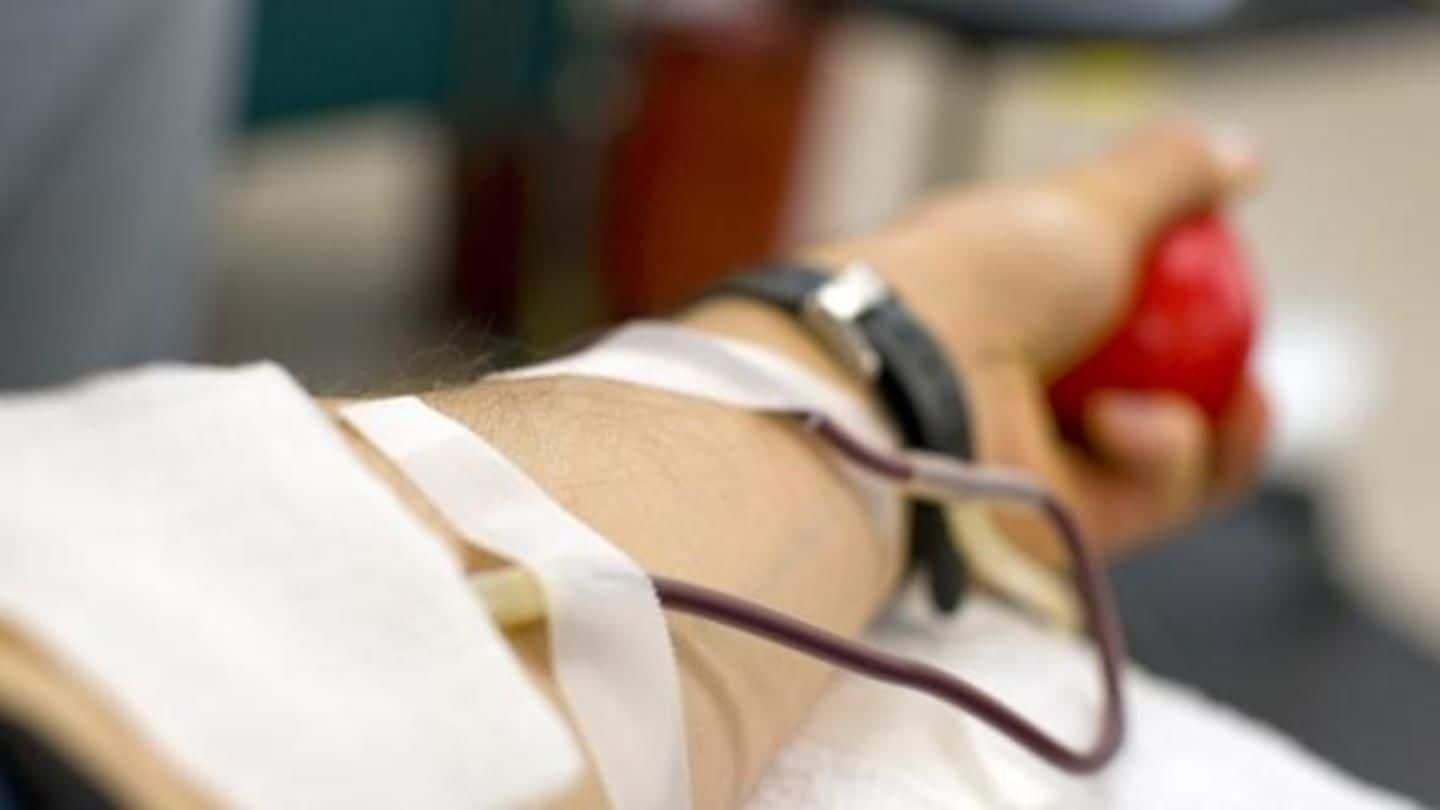
58-year-old Bengaluru man traveled 200kms to save a stranger's life
What's the story
For this 35-year-old, Shridhar Bindiganavile will always be a messiah who saved his life. On May 7, 58-year-old Bindiganavile traveled 200kms from Bengaluru to Vellore to donate blood to Simhadri Polaki, and they aren't even related. Polaki had the rare 'Bombay' blood type; if he took blood from another group, his would coagulate, and that could be fatal. But Bindiganavile had the same type.
Noble man
Upon learning Polaki's condition, Bindiganavile caught train to reach Vellore
Polaki worked as a construction supervisor in Vizag before being diagnosed with thalassemia. Within days, his haemoglobin levels dropped to 5gm/dl, against the normal 12-16. Desperate for a solution, his family spread the word through social media and got Bindiganavile's reference. Within a day of establishing contact, Bindiganavile caught a train, reached Vellore and donated his blood.
Generosity personified
His blood has traveled to Gorakhpur to save infant's life
Bindiganavile had made it to the news in 2015 too, when he saved an infant's life. The Gorakhpur-based baby, Sandesh Kumar, needed blood for a surgery to correct his heart condition. When 'The Think Foundation' asked for donors in Mumbai, Bindiganavile traveled overnight and donated his blood, along with two others. The blood was flown to Delhi, from where Kumar's father collected it.
Duty towards society
Bindiganavile has donated blood 45 times till now
Millions die due to blood scarcity in India, and given this blood type's rarity (only 1 out of 10,000 Indians have this) Bindiganavile considers donating blood a duty he has towards society. A retired central government employee, Bindiganavile got to know that he has the rare blood type in 2002. Since then, he has donated blood 45 times till now.
Information
Know about world's most rare blood type named after Bombay
The world's most rare blood type is named after Bombay because it was discovered here way back in 1952, when two people needed blood transfusion. Both their bodies rejected blood from 160 donors. At the end, a Bombay resident's blood was found to be suitable, hence the christening. Technically, it's called 'HH' blood type, which generally results due to extensive inbreeding.